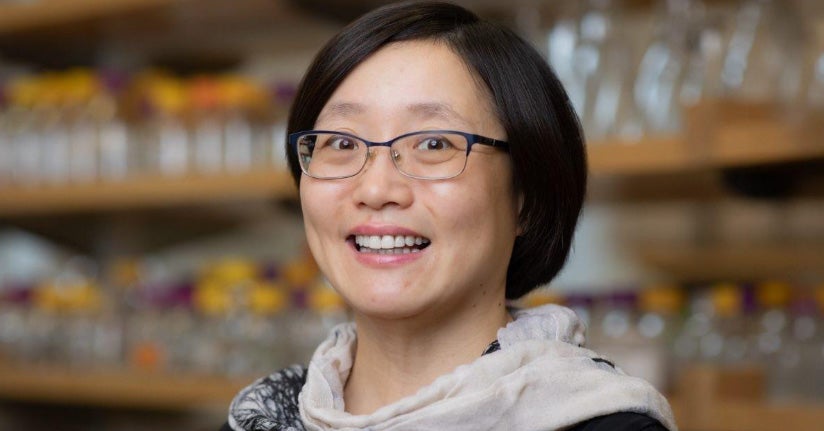RCC Spotlight: Dr. Yan-Yan Hu

Dr. Yan-Yan Hu earned her bachelor’s degree in chemistry at Tsinghua University in Beijing, China. She then pursued her Ph.D. in analytical chemistry, focusing on the development and applications of solid-state nuclear magnetic resonance methods at Iowa State University. Following the completion of her Ph.D., Dr. Hu conducted research in energy materials at the University of Cambridge, as a Royal Society Newton Fellow and a Marie Curie Research Fellow.
In 2014, Dr. Hu joined Florida State University’s Department of Chemistry and Biochemistry as an assistant professor, later earning tenure and promotion to associate professor before advancing to full professor. She has been the recipient of multiple awards, including the Marion Milligan Mason Award from the American Association for the Advancement of Science, the CAREER award from the National Science Foundation, and the Agnes Fay Morgan Research Award from Iota Sigma Pi. Currently, Dr. Hu serves as a topical editor for the ACS journal Chemistry of Materials.
Dr. Hu’s research focuses on two major research areas. The first area focuses on functional materials for advanced energy storage technologies, particularly for rechargeable batteries. Meanwhile, the second research area focuses on protein-protein interactions and their associated biological functions. One line of investigation she is pursuing involves protein-protein interactions in functional complexes within the Mycobacterium tuberculosis divisome. The aim is to better understand how cell division works in order to combat drug resistance in therapeutic interventions for diseases like tuberculosis.

Figure 1 depicts nuclear magnetic resonance in action.
Although these two programs are distinct, they share a trait: the potential to make a meaningful impact on the world. Advances in energy storage technologies enhance the quality of daily life via technological advancement, while studies of protein-protein interactions contribute to improving public health.
To conduct this research, Dr. Hu relies heavily on FSU’s Research Computing Center (RCC), which provides the high-powered computational resources essential for advanced modeling. The development of new materials requires a deep understanding of structural features that enable fast ion transport and long-term cycling stability. Using RCC resources, Dr. Hu can model materials, evaluate their stability, and link structural characteristics to functional properties, offering clear guidelines for designing the next generation of high-performance batteries. Ultimately, Dr. Hu’s research on advanced energy storage technologies and protein-protein interactions is changing the way we think about the future.
*Figure courtesy of Dr. Yan-Yan Hu
